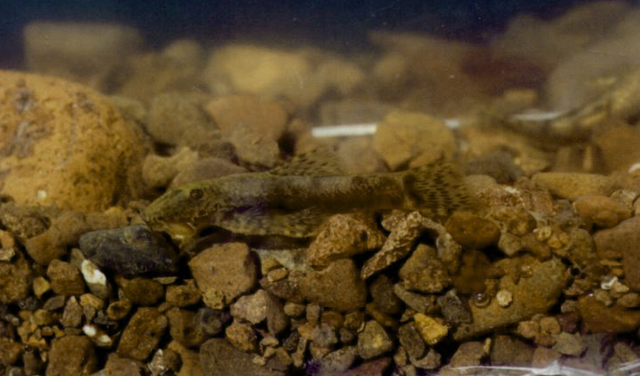| Loricariidae (Armored catfishes), subfamily: Hypoptopomatinae |
| 3.4 cm SL (male/unsexed) |
|
demersal; freshwater |
| South America: Brazilian drainages in rio Araranguá, rio Mapituba, rio Tres Forquilhas and rio Maquine in southern Santa Catarina and northeastern Rio Grande do Sul. |
|
Dorsal soft rays (total): 8-8; Anal soft rays: 4-5. Extreme reduction of dermal plates on the dorsal surface of body, with just the ventral and mid-ventral rows normally developed; absence of dorsal-fin spinelet and nuchal plate; absence of the connecting bone and ligament between second dorsal-fin proximal radial and rib of sixth centrum; reduction of lateral line; loss of the infraorbital sensory canal; and absence of adipose fin (versus present in all species but H. vestigipinnis). Fourth branched ray of pelvic fin longest, reaching to middle of anal fin when depressed. |
| Occurs in small, shallow rivers with clear water and moderate to strong water current. Usually found among the bottom rocks and stones. |
|
Least Concern (LC); Date assessed: 07 November 2018 Ref. (130435)
|
| harmless |
Source and more info: www.fishbase.org. For personal, classroom, and other internal use only. Not for publication.
